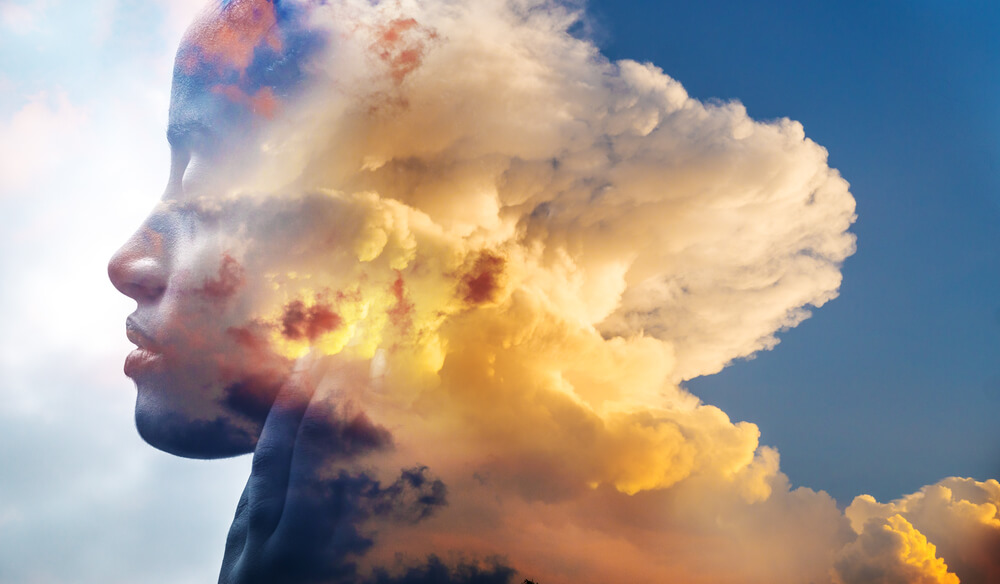8 Ways Drugs and Alcohol Affect Your Mental Health

The Substance Abuse and Mental Health Connection
Don’t feel bad if you or a loved one suffers from substance abuse and mental health disorders. It’s common for anyone with an addiction to have a co-occurring mental health issue. However, you must treat them by learning the ways drugs and alcohol affect your mental health to enjoy sober living if you suffer from both.
There’s a strong tie between substance abuse and dual diagnosis of mental illness. Over one in four adults with a significant mental illness also suffer from substance use disorders. Sometimes it’s hard to tell which came first. But when it comes to rehab, it doesn’t matter whether the drugs and alcohol came first or the mental illness did since both need to be treated.
Whether you choose an inpatient or residential facility or go with partial hospitalization or an intensive outpatient program, your treatment plan should address both substance abuse and co-occurring mental health disorder.
Why Treat Mental Health and Addiction Together?
Very often, people with undiagnosed mental illness or who are neurodivergent (for example, have ADHD or are on the autism spectrum) use substances to try to soothe the mental symptoms they’re experiencing. Over time they end up dependent on those substances. It’s a form of self-medication that may seem to work, at least at first. Brain changes resulting from mental illness can also enhance the effects of the substances, making you more dependent on the substance.
Both disorders can be treated with the proper recovery plan, and if one goes untreated, you’re more likely to relapse once you’ve left the inpatient facility or outpatient program. Since the drugs and alcohol and the mental issues tend to feed off each other, if you only treat one, you’ve treated half the problem.
Having said that, both disorders may not be treated simultaneously. Depending on your substance abuse severity, you may need to detox before your mental illness can be treated. For example, alcohol is a known depressant, so it wouldn’t make much sense to treat your depression while still drinking. Once you’re clean and sober from your drug of choice, then you and the treatment professionals can begin to address the mental illness aspect.

Signs of Co-Occurring Mental Health and Substance Use Disorder
While the symptoms of substance abuse are well-known, the signs of a mental illness can vary. A few symptoms (such as being socially withdrawn) are common to both. If you’re experiencing both substance abuse and some of the mental illness symptoms listed below, you likely have a dual diagnosis.
Substance abuse signs
- Lack of performance
- Getting into trouble frequently
- Changes in appetite, attitude, personality, or sleep patterns
- Mood swings
- Bloodshot eyes
- Physical deterioration
- Slurred speech
- Don’t want to be with friends or do other social activities
Mental illness signs
- Confusing thoughts
- Mood swings
- Changes in appetite, attitude, personality, or sleep patterns
- Don’t want to be with friends or do other social activities
- Angry most of the time
- Inability to deal with daily living and small problems
- Suicidal thoughts
Conversely, the changes in the brain that can occur as a result of a substance use disorder can make you more likely to develop a mental illness as you continue to use drugs or alcohol. There are several ways drugs and alcohol affect your mental health, including the following:
1. Difficulties with staying erect and having orgasms
While these might technically be physical symptoms, they’ll affect your mood and behavior if you go with either of these problems for a long time.
2. Feeling like you can’t get through the day without your drug or alcohol
This is the definition of dependence. While not all drugs and alcohol are physically habit-forming, many of them make you feel dependent on the substance.
3. Sudden changes in your mood
This can result in suicide risk if your mood plummets to a very dark place.
4. No motivation
While at one time you might have been a promising student, worker, or athlete, drugs and alcohol can drain your motivation, so all you want to do is sit around and do more drugs and drink more booze.
5. Anxiety
You may be unable to stop fearful thoughts about what’s likely to happen, imagine worst-case scenarios, or feel nervous.
6. Depression
Severe depression can also lead to suicide, among other problem behaviors.
7. Relationship problems
Good relationships are critical for mental health, even for introverts. Human beings are sociable, and being with other people is associated with long, healthy lives. But if you’ve got a problem with drugs and alcohol, you’ll likely find you end up with people problems too.
8. Drug-induced psychosis
Psychosis is a break from reality. You hear, see, or believe things that other people (who are in touch with reality) don’t. You might believe that evil outside forces are controlling you, or you might think that you are a god.
If you already have a mental illness, drugs and alcohol will only make that worse. However, some research also shows certain drugs can cause mental illnesses that weren’t there: cannabis, LSD, ecstasy, and cocaine have been linked to psychosis.
Learn about Hayden Panettiere’s addiction to opioids here:
The Most Common Co-Occurring Disorders
While there are a variety of mental health disorders and ways that drugs and alcohol affect your mental health, there are four major types of mental illness that often co-occur with substance use disorders.
Schizophrenia
While it’s unclear what causes schizophrenia, many patients self-medicate with drugs and alcohol.
Personality disorders
These patterns of thinking, feeling, and behavior make living difficult. The illnesses you may be most familiar with include borderline and antisocial personality disorders.
Depression
Most people feel “blue” or “sad” sometimes, but that doesn’t mean they have depression. Those who do can’t get rid of these feelings, and as a result, it interferes with their life.
Anxiety disorders
Most people worry sometimes, but those with anxiety disorders can’t get rid of it. The anxiety often worsens over time, and OCD (obsessive-compulsive disorder) and panic disorder are two types of anxiety disorders.
Risks of Untreated Mental Illness and Addiction
Without treatment, both drug and alcohol addictions and mental health issues will continue to get worse. With addictions, as you keep drinking and taking drugs, your body builds up higher and higher tolerances. Acute, medically supervised detox may be the only way to survive withdrawal after you’ve been medicating heavily and for a long time. Similarly, the longer your mental illness goes untreated, the longer you’ll potentially be in therapy or need medications to deal with its effects.
The worst-case outcome for untreated substance abuse and mental health disorders is death. You could overdose even without meaning to or kill yourself through suicide. You deserve to get your illnesses treated and to enjoy your life substance-free, not to die because you didn’t get the help you needed in time.
Dual Diagnosis Treatment at Novo Detox
When you have co-occurring disorders, the staff treating you must understand how to deal with mental illness and substance abuse. Novo Detox has expert clinical staff that can assist you with both. We offer medically assisted detox and inpatient and outpatient treatment plans, including partial hospitalization and intensive outpatient programs.
In addition to traditional individual therapies such as CBT (cognitive behavioral therapy), life and social skills, and relapse prevention, Novo Detox also brings holistic modalities such as meditation, yoga, nutritional counseling, reflexology, and tai chi, among others. We treat the whole person. Whatever drugs and alcohol affect your mental health, we’re here to help you get the care you deserve and start your journey to a better life. Call us at (844) 834-1777 today.




